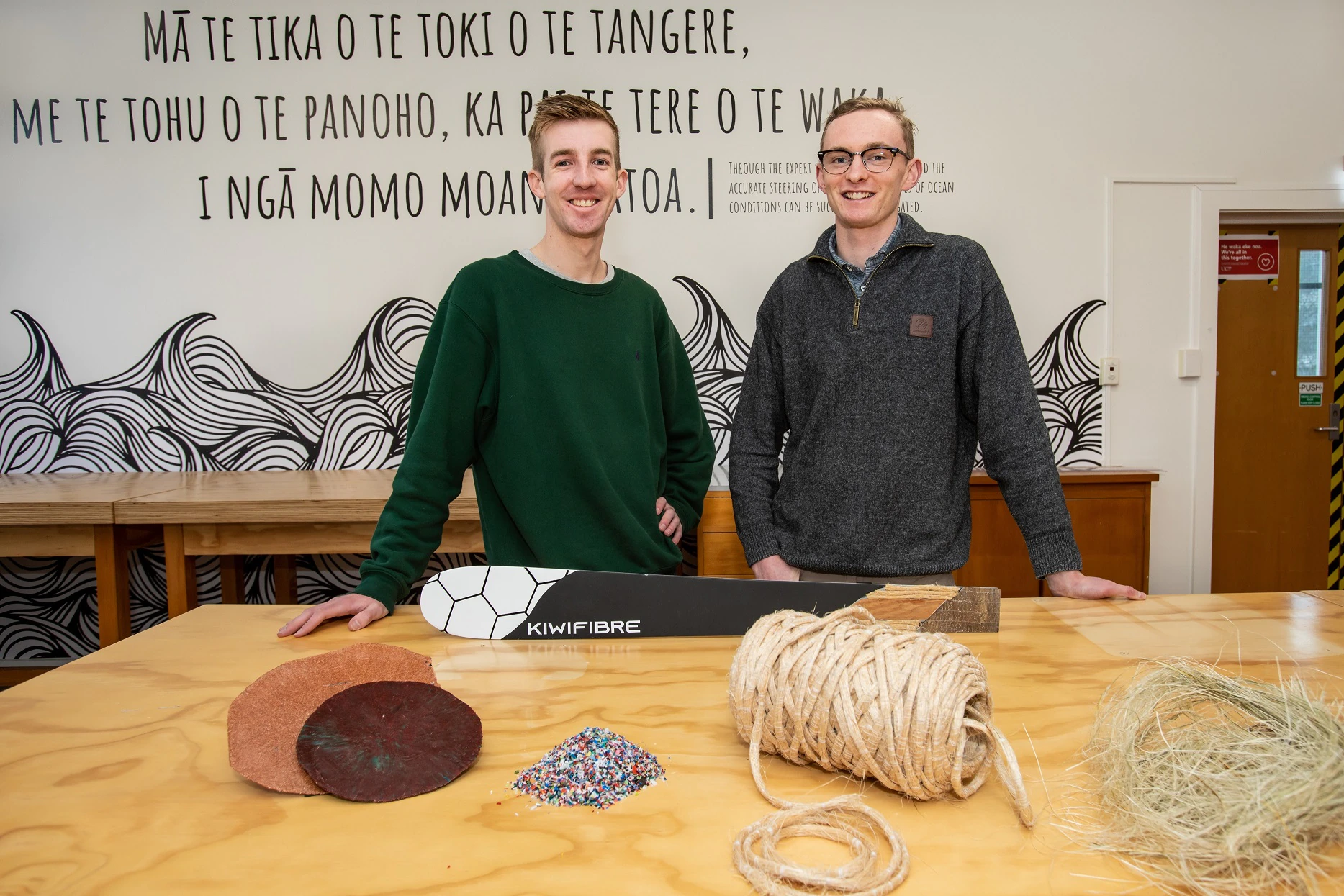
SYDNEY – New Zealand students have developed sustainable materials made from cabbage tree leaves and flax that could soon be used to make high-performance skis, kayaks and skateboards. Their plan is to use them to replace traditional fiberglass and carbon fiber.
Skateboards need to be tough. Two students at New Zealand’s University of Canterbury, Ben Scales and William Murrell, believe they can make them even more durable by using fiber from plants.
After experimenting in their garage workshops, they created new, natural composite materials.
Scales, who is 21 and studies product design, says their first version is looking good.
“The prototype is a harakeke bio-composite skateboard. So, it is 25 percent harakeke fiber and 75 percent recycled polylactic acid, which is a plastic derived from corn starch. It is commonly used in 3D printing, and we have found it to be (a) quite well-suited material to a skateboard because it absorbs the bumps and shocks a lot more than, say, a carbon-fiber skateboard or a conventional wood skateboard,” Scales said.
The fiber is extracted from the Harakeke plant, which is a native New Zealand flax, and mixed with various resins. Leaves from the cabbage tree, which is similar to a palm tree, are also a key ingredient.
The plan is to use these sustainable materials to make skis, snowboards and kayaks, which are currently manufactured from fiberglass and carbon fiber.
The university students have attracted interest from potential business partners in other countries.
“They range in companies in Europe that make boats to skis, and then a few startups overseas who are looking to sort of shape the personal transport industry with e-bikes and things like that, and they are looking to use sustainable materials that just are not offered in industries like that. So, they are wanting to use our material once we have gotten it ready, which will hopefully be soon,” Scales said.
If they’re successful, the students could reinvigorate New Zealand’s flax fiber industry, and revive practices used by indigenous Māori before European colonization.













































